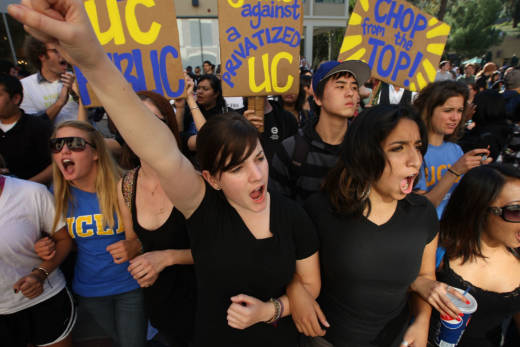UC officials say the increase will generate nearly $35 million and help compensate for lower than expected state funding at a time of record-high enrollment. The money will help fund more faculty and course offerings and help reduce class sizes.
Napolitano has said the UC had no choice but to propose tuition increases after Gov. Jerry Brown allotted less funding for California's public universities than expected in his 2018-19 budget proposal earlier this year.
The state budget will go through numerous revisions before a final vote is held in June but Brown has said the UC will not get additional funds and urged university officials to "live within their means."
The regents had initially planned to vote on tuition increases at their last meeting in January but opted to delay the vote in hopes of securing more state money. In May, regents will take up the more contentious issue of whether to raise tuition for California residents by 2.7 percent, or $342.
California residents currently pay $12,630 in "system-wide tuition and fees" annually, as do out-of-state students who also pay a "supplemental tuition" of $28,014.
Thursday's vote increased the supplemental tuition for out-of-state students to $28,992, bringing the new total for out-of-state students' tuition and fees to $41,622. The UC estimates that room and board, books and other costs add about $20,000.
California residents make up about 82 percent of the 217,000 undergraduates at UC schools, while about 6 percent of students come from out-of-state. International students account for 11 percent of UC students.
Students have vocally opposed any increases and urged regents to push harder for state funding.
Lt. Gov. Gavin Newsom, who is a UC regent and also running for governor, voted against the increase on Thursday, saying there was still time to put pressure on the Legislature.
"I feel once again we're letting them off the hook by making a decision prematurely," Newsom said. "I find this an unfortunate decision."
